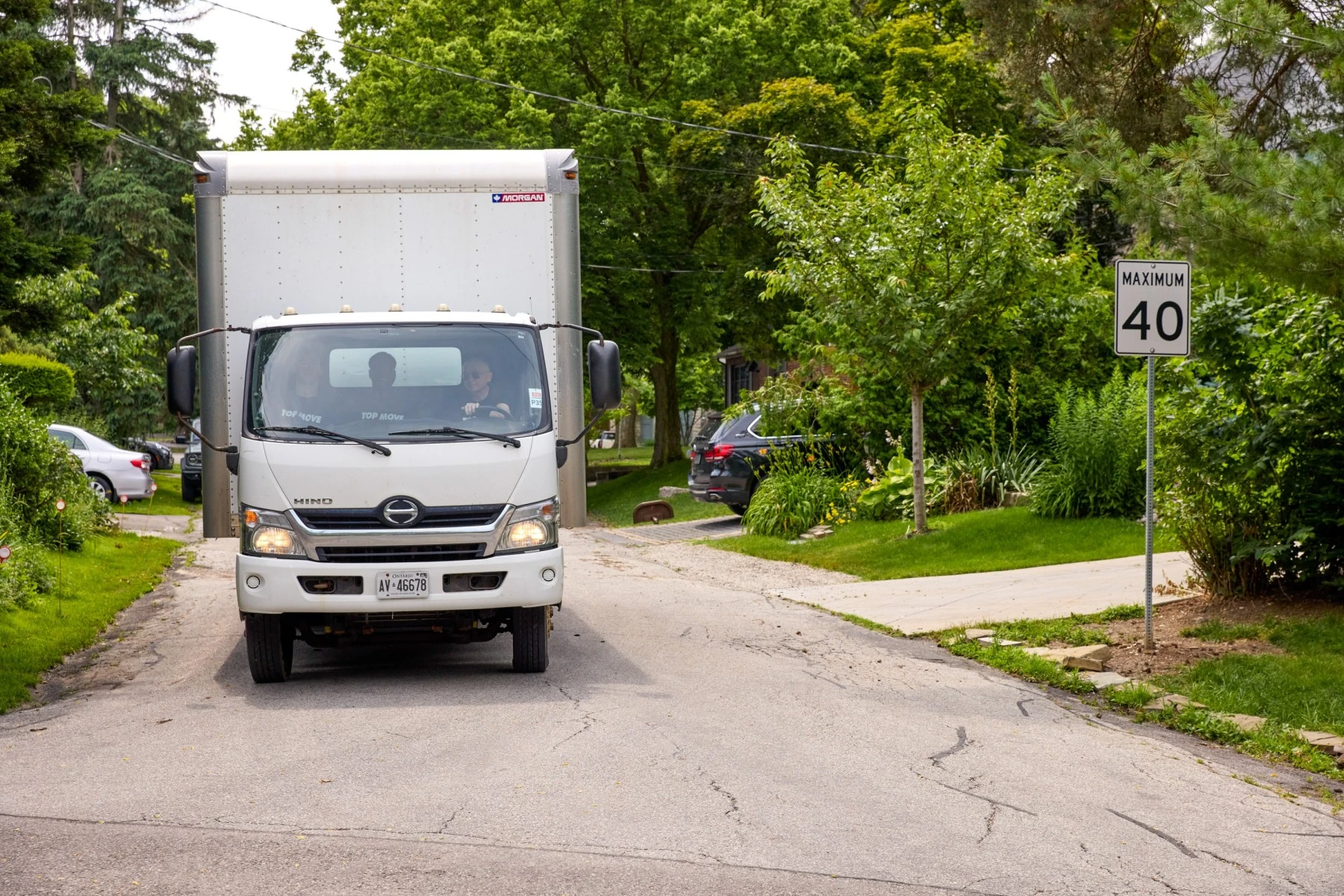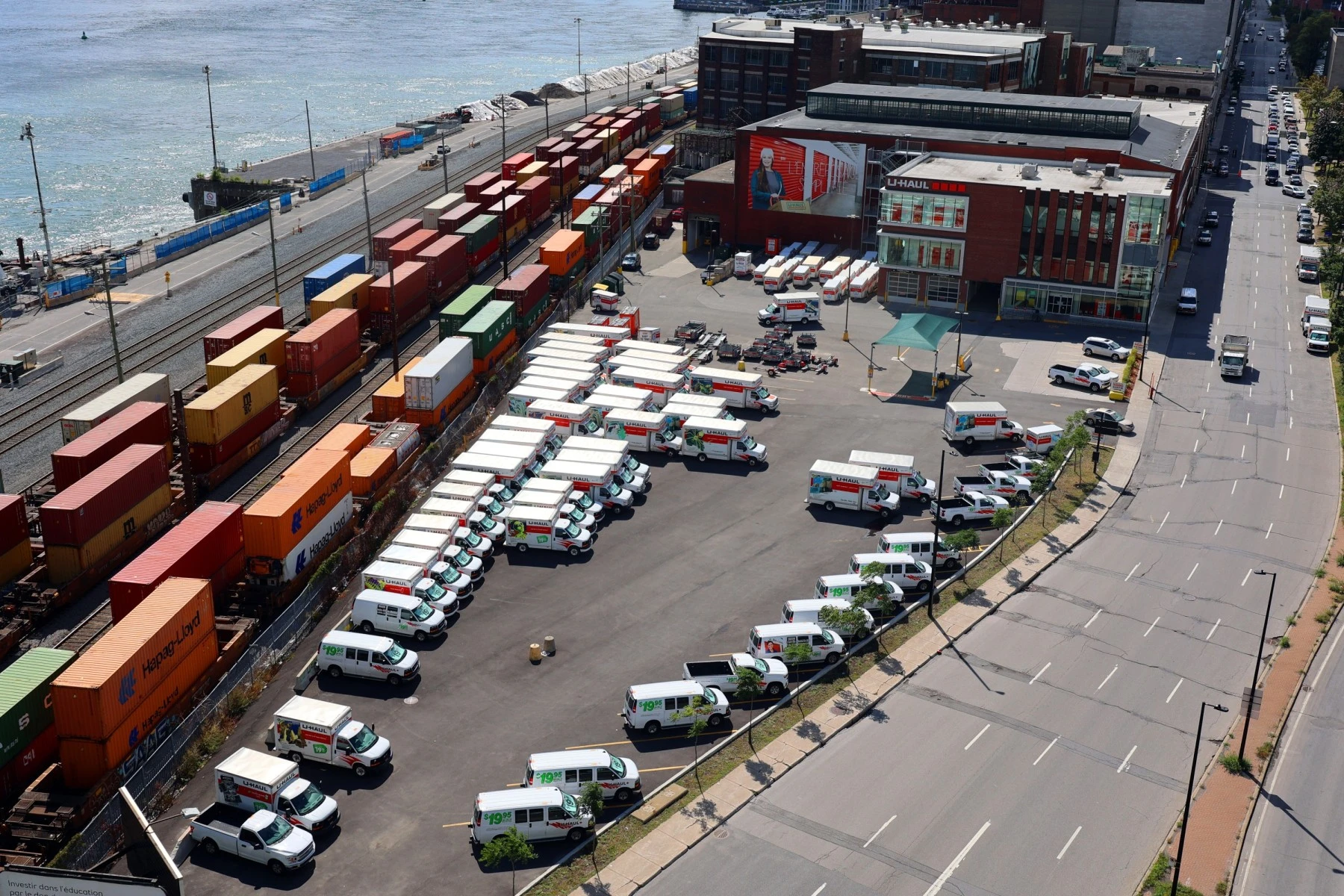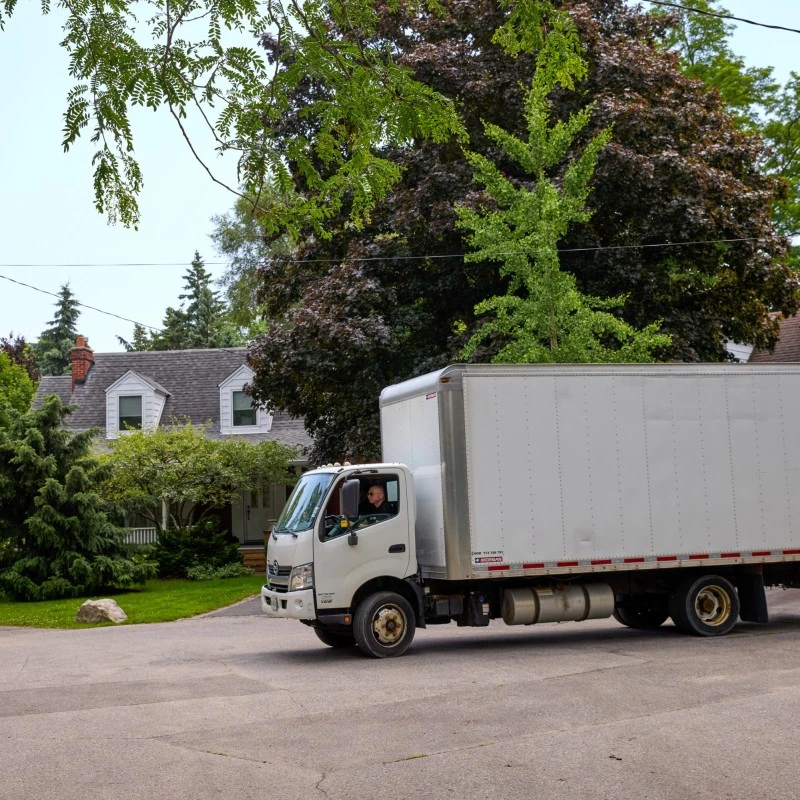Moving checklist and relocation guide in Montreal


Montreal is a unique Canadian city. It offers a taste of European culture while still maintaining a modern North American feeling. It’s loaded with history and famous for its arts communities. French, North American and global cultures blend to make Montreal what some consider the most interesting and diverse city in Canada.
Perhaps the best thing about Montreal is that it offers a lower cost of living than other major cities such as Toronto and Calgary. The low cost of living and ability to live comfortably in Montreal attracts people from all over Canada and the world, hence the city’s rich multiculturalism.
Tech, media, arts and finance industries are strong, and the city hosts numerous universities and colleges.
If you are drawn to Montreal’s diversity and plentiful opportunities, and have made the choice to move there, thorough research and preparation can make the process more efficient and cost-effective.
This guide offers valuable tips and advice for every stage of your move, along with insights into life in Montreal. From budgeting and packing to cleaning and moving day checklists, you'll find everything you need to stay organised and make moving day go as smoothly as possible.
Introduction to moving day in Montreal
 Before we get into describing moving in Montreal, you must learn about the tradition of Moving Day in Quebec.
Before we get into describing moving in Montreal, you must learn about the tradition of Moving Day in Quebec.
Quebec’s Moving Day Tradition
Quebec’s Moving Day, held annually on July 1st, is a longstanding tradition where many rental leases end, leading to a mass relocation of tenants.
This creates challenges for renters and moving companies, such as increased demand, higher moving costs, and pet abandonment. It also provides economic opportunities, including a surge in business for movers and more opportunities for eco-friendly "green moving" services.
Moving Day is chaotic, especially in Quebec’s bigger cities. However, it's not all bad. Moving Day ensures families don’t have to move during winter and allows time for them to settle in before school starts.
This tradition makes proper planning especially important if you are moving within or to Montreal. If possible, try your hardest not to move on July 1st. Also, keep in mind that Montreal is a university city, which means finding accommodations for August and September 1st will be competitive. If you do plan to move in the summertime, book your movers way ahead of time.
Traffic gets congested in Montreal during the usual rush hours of 7 am to 10 am and 4 pm to 7 pm. Icy winter driving can make things even slower. Public transit in Montreal is excellent, and the Metro doesn’t slow down in the winter like the roads do.
Montreal has hot, humid, muggy summers and freezing cold, long winters. Both of these extreme seasons can put a damper on moving day, so try to move during the shoulder seasons, if you can.
With a wide range of moving companies available in Montreal, Top Move helps you find the perfect one that fits both your budget and your unique moving needs.
Tips for a stress-free move
 Here are some important steps to help bring ease to your Montreal moving day, as well as increase safety for everyone involved.
Here are some important steps to help bring ease to your Montreal moving day, as well as increase safety for everyone involved.
- This is a great opportunity to improve both your budgeting and time management skills. Schedule a moving company as early as possible.
- Plan your route with major roads, intersections, and transit options in mind. Using a mapping app like Google Maps can give you real-time updates on traffic, accidents, and construction. You can also familiarise yourself with Montreal’s public transit system.
- Check for awkward spaces like narrow hallways and staircases in both your current and new home, and notify your movers in advance to prevent any issues.
- Take care of administrative tasks ahead of time by updating your address with utility and service providers. If you’re moving to a different municipality, make sure your records are updated accordingly.
- Make an inventory of your belongings to stay organised on moving day. This will help you determine a suitable truck size, track your items during the move, and expedite the packing and unpacking process.
What you need to know about moving in Montreal
Housing
 When it comes to finding houses in Montreal, prices are generally low, but competition is high, especially for lower-priced units. As mentioned above, many leases start on July 1st, so the market is busiest in the Spring. Quebec has strong rental protection laws, so make sure you check tenant rights before signing anything.
When it comes to finding houses in Montreal, prices are generally low, but competition is high, especially for lower-priced units. As mentioned above, many leases start on July 1st, so the market is busiest in the Spring. Quebec has strong rental protection laws, so make sure you check tenant rights before signing anything.
Affordable areas to rent or buy in Montreal
-
Hochelaga Maisonneuve
-
Ahuntsic Cartierville
-
Villeray
-
Côte-des-Neiges
-
Notre-Dame-de-Grâce
-
Lachine
-
Longueuil
-
Rosemont–La Petite-Patrie
-
Verdun
-
Saint-Henri
Transport
 Montreal’s public transit is operated by the Société de transport de Montréal (STM). It has a metro system with four lines Green, Orange, Yellow, and Blue), and a bus network. The metro connects all of the major districts, and the buses go everywhere else, and have late-night service. There’s a new light rail system called the Réseau Express Métropolitain and it’s in the process of expanding. Exo commuter trains go to the suburbs.
Montreal’s public transit is operated by the Société de transport de Montréal (STM). It has a metro system with four lines Green, Orange, Yellow, and Blue), and a bus network. The metro connects all of the major districts, and the buses go everywhere else, and have late-night service. There’s a new light rail system called the Réseau Express Métropolitain and it’s in the process of expanding. Exo commuter trains go to the suburbs.
A fare of CA$3.75 provides access to both metro and buses, and you can also get a monthly pass for CA$93.
Weather
 Montreal’s weather varies quite a bit throughout the year, which can affect moving plans. Winters are harsh, with heavy snowfall, icy roads, and temperatures often dropping below 20°C. This adds challenges and potential danger to winter moving.
Montreal’s weather varies quite a bit throughout the year, which can affect moving plans. Winters are harsh, with heavy snowfall, icy roads, and temperatures often dropping below 20°C. This adds challenges and potential danger to winter moving.
Summer provides longer days but also brings humidity and occasional heatwaves. This makes the shoulder seasons the best time for moving, if possible.
Cost of living
You can celebrate the fact that Montreal is Canada’s most affordable major city. However, it’s still recommended to research the cost of living in Montreal beforehand.
Choosing the right moving company
 When you are paying for any service, it’s important to do some research before hiring anyone. Online reviews are a great place to see what customers are saying, and they are usually quite honest in their opinions.
When you are paying for any service, it’s important to do some research before hiring anyone. Online reviews are a great place to see what customers are saying, and they are usually quite honest in their opinions.
You are going to want to research insurance policies for various companies and find which coverage is the most suitable and affordable for your needs. After you’ve taken inventory of your belongings, you can figure out which size vehicle you will need.
While saving money is important, the cheapest option isn’t always the best. Go with the option that demonstrates experience and a high level of professionalism.
Montreal moving house checklist
10+ weeks before you move
-
Get to know Montreal on a deeper level by exploring it physically and spending recreational time in the areas you are interested in. Imagine yourself in different neighborhoods—would you thrive in the artistic Plateau Mont-Royal? Maybe you prefer the family-friendly atmosphere of NDG or the waterfront charm of Verdun. Consider your lifestyle, access to parks and amenities, and factor in commuting times from each area to determine the best fit for the needs of you and your family.
-
Set yourself a moving budget. Factor in costs such as mover fees, packing supplies, utility setup, missed workdays, and fuel expenses. To avoid financial stress, allow a little wiggle room for extra spending—who knows what may arise?
-
Book your movers well in advance to get the exact date that works for you.
-
Research storage options in Montreal if you need a place for extra belongings during the moving process.
-
Declutter before packing—donate, sell, or recycle items you no longer need. It's a time to be ruthless.
-
Create a packing plan—list the order of packing your belongings, note necessary supplies needed, and schedule time for shopping.
-
If you are renting, give proper notice to your landlord. In Quebec, for leases of 12 months or more, you need to give your landlord 3 to 6 months' notice before the lease ends. For leases shorter than 12 months, the notice period is 1 to 2 months.
6+ weeks before your move
-
Figure out which packing supplies you’ll need and plan a shopping trip or order online from a Canadian company. Make sure your supplies are high quality—strong boxes and reliable packing tape will help protect your belongings.
-
For a more eco-friendly move, reuse sturdy grocery store boxes, old newspapers, and blankets instead of plastic bubble wrap.
-
Start packing nonessential items like fine china, books, and seasonal outdoor gear.
-
Update your utilities and services with your new address.
-
Notify Canada Post, your bank, and any subscription services of your address change.
-
Take extra care when packing fragile items like heirloom dishes, artwork, mirrors, electronics, and antiques.
-
If your new home requires a parking permit, arrange for one now, and don’t forget a permit for the moving truck as well.
4+ weeks before your move
-
Double-check your moving dates with the moving company to avoid any mixups or last-minute surprises.
-
Schedule a cleaning service if you plan to hire professionals for the job.
-
Arrange care for pets or children on moving day to keep them safe and out of the way. No tripping on small dogs or toddlers.
-
Inspect your new home for any necessary repairs or additional cleaning before moving in.
2+ weeks before your move
-
Keep packing and organising your belongings.
-
Prepare a bag of essentials for the moving day, including toiletries, medications, important documents, chargers, snacks, water and anything else you may need in the moment.
-
Update your address for your driver’s licence, car registration, and voter registration.
1 week before your move
-
Create a detailed moving day plan and share it with your moving company. Thorough communication beforehand can save a lot of time on the big day.
-
Start deep cleaning your home.
-
Finish packing any remaining items.
-
Stop watering large plants to make them lighter and easier to move.
Moving day
-
If necessary, reserve a parking space for the moving truck.
-
Give movers space to work—they are experienced professionals, so let them handle the heavy lifting.
-
Do a final walkthrough of your old home to ensure nothing is left behind.
-
Settle into your new home and start unpacking.
After the move
-
Begin by unpacking the most important things. Focus on setting up your kitchen, bedroom, and bathroom to make daily routines easier.
-
Check that all boxes and furniture are in the correct rooms before diving into unpacking.
-
Explore your new neighborhood by grabbing a coffee, taking a stroll in the park, and finding services like the post office, rec centre and library.
Budgeting for movers in Montreal
Moving costs in Montreal depend on the size of your home and the distance traveled. A 1-bedroom apartment move will probably cost between CA$400 and CA$700, while a 4-bedroom house can cost CA$1,500 to CA$2,500.
Extra charges may apply for specialty items, so comparing quotes from different movers can help you find the best deal. Top Move can save you a lot of time by doing the comparison for you to find you the best deal on moving services.
If you’re buying a home, be sure to budget for additional expenses like legal fees, inspections, conveyancing, property taxes, and insurance.
Renters should plan for a damage deposit, usually equal to one month’s rent.
Other costs to consider include utility setup, packing supplies, professional cleaning services (if that’s the route you are choosing), and any necessary parking permits.
Choosing between hiring movers and DIY
 Deciding whether to hire movers or to take it on yourself depends on your budget, time constraints, and physical abilities. Each option has its advantages and drawbacks.
Deciding whether to hire movers or to take it on yourself depends on your budget, time constraints, and physical abilities. Each option has its advantages and drawbacks.
Hiring a moving company
Advantages of professional movers in Montreal
-
Speed and efficiency: Experienced movers work quickly and efficiently, which saves you time and physical effort.
-
Less stress: Moving is physically demanding, and professionals take care of the heavy lifting and delicate packing, leaving you more time for other tasks.
-
Peace of mind: Most moving companies offer insurance, so if an accident happens, you know it is covered.
-
Specialised handling: Movers are skilled in transporting fragile items like glassware, artwork, and musical instruments.
-
Safety first: Hiring movers reduces the risk of injuries and damage to your belongings.
If you are looking to find credible movers, low prices and companies that can handle unique moving requests, Top Move connects the dots for you, so you can focus on other moving day details.
Challenges of hiring professional movers in Montreal
-
Higher costs: Just like with any professional offering, moving services come at a price.
-
Additional fees: You may get charged extra for long carrying distances, narrow access points, stairs, or elevators during the move.
Moving on your own–DIY
Benefits of a DIY move
-
Cost savings: Doing it yourself is the most budget-friendly option, especially if you don’t own much stuff.
-
Complete control: You handle your possessions yourself, which can be reassuring for some.
-
Flexible scheduling: You move on your timeline, which is especially ideal for those who work outside of the conventional 95 work hours.
Challenges of a DIY move
-
Time-consuming: Believe us when we say that packing, loading, driving, unloading, and cleaning always take longer than expected.
-
Physical strain: Moving is tough on the body, and lifting heavy or awkward furniture can easily lead to injuries.
-
Potential damage: Without professional experience, you may struggle to properly protect your belongings (or your back) during the move.
-
Weather: If you are sensitive to heat, humidity or extreme cold, DIY moving could prove to be challenging in Montreal, if you're moving during winter or summer.
If you are short on time, don't want to risk wrecking your body, or have certain valuables that need to be handled with extreme skill and care. A booking website like Top Move has you covered and will find you the best people for the job.
Packing each room for maximum efficiency
Proper preparation can make packing for a move much easier. Starting early and staying organised is crucial. Label boxes like your life depends on it. There’s no such thing as too many labels.
By focusing on one area at a time, you can stay on track and avoid feeling overwhelmed as you move and settle into your new home. Here are some tips and guidance for each section of your home.
Outdoor areas (Garden, shed and storage)
 Hopefully, you aren’t moving during the winter, and if you are, try dealing with this area of your house in the fall before snow arrives.
Hopefully, you aren’t moving during the winter, and if you are, try dealing with this area of your house in the fall before snow arrives.
-
Tools: Sort through your tools and donate anything you don’t need. Many municipal dumps have areas where you can leave items for restoration or recycling. Pack smaller tools in sturdy boxes, and wrap larger equipment like chainsaws, lawnmowers, and trimmers in old blankets for protection.
-
Furniture: Disassemble outdoor furniture when possible and wrap pieces in blankets to prevent damage during transit. Keep hardware in small labelled bags.
-
Plants and pots: Transport large potted plants separately. Secure medium and small plants in strong boxes, wrapping the ceramic or clay pots in fabric to avoid bumping each other and chipping. Reinforced produce boxes from grocery stores work well for heavy loads. Avoid watering plants for at least a week before the move to keep them lightweight.
Guest rooms
-
Bedding: Store bedding in large bags, bins, or boxes for quick and easy packing. Label everything clearly so that you can get to sleep after moving, as quickly as possible.
-
Furniture: Disassemble bulky items like bed frames, if possible. Keep screws and hardware in labeled bags to prevent losing them.
The office
-
Paperwork: Sort through your documents, shredding and recycling anything you no longer need. Important papers can be stored in a clearly labeled file box, with essential documents kept in your moving day bag.
-
Electronics: Instead of bubble wrap, use fabric or towels to protect computers and printers. If you still have the original boxes, use them for extra security, saving space and maximising organisation.
-
Furniture: Disassemble desks if possible to save space. Pack small office supplies in labeled boxes for easy access. Be careful with lamps.
Living and dining areas

-
Electronics: If you still have them, use the original boxes for TVs, speakers, and other devices. Otherwise, wrap them in blankets, towels, or sheets for protection.
-
Furniture: Use moving blankets or furniture pads to protect sofas, tables, and large items. Disassemble pieces where possible for easier transport.
-
Books and decorations: Pack books in small boxes or rolling suitcases to prevent overly heavy loads. Wrap delicate decorations carefully and place them in small boxes within larger boxes for extra protection.
-
Soft furnishings: Pack cushions, throws, and rugs in large bags or boxes without overstuffing to maintain their shape.
Main bedroom
-
Clothes: Use wardrobe boxes for hanging clothes to keep them wrinkle-free. Fold everything else into suitcases or boxes.
-
Bedding: Pack bedding in large labeled boxes so you can set up your bed as soon as possible after moving in.
-
Furniture: Disassemble large items like bed frames and clothing racks, keeping all hardware in labeled bags.
-
Personal Items: Pack books, electronics, and small personal belongings in well-labeled boxes. Store valuables like jewelry and watches in dividers within your moving day essentials bag. Wrap framed photos in fabric for extra cushioning.
Bathrooms
- Declutter: Dispose of expired toiletries and medications, and donate unused beauty products to women’s centres.
- Toiletries: Pack liquid items in sealed bags to prevent leaks. Keep all toiletries together in one box for easy access. Padded travel toiletry bags can help protect small glass bottles.
- Fragile Items: Wrap mirrors, glass jars, and delicate bathroom items in towels within boxes to keep them safe during transport.
The Kitchen
-
Declutter: Go through your pantry and donate any expired but still safe food items. Compost the rest and recycle or reuse the packaging. Hard plastic packaging can be used to pack small, fragile belongings.
-
Dishes and glassware: Wrap fragile items in paper or fabric. Plates and bowls can be stacked once wrapped. Glasses should be packed separately with dividers.
-
Food: Try to use up perishable food before moving by preparing meals in advance. Having meals ready to eat will also make things faster on moving day. Pack nonperishable items like canned goods in small boxes for easier handling.
-
Appliances and utensils: Wrap appliances such as blenders and toasters in fabric or towels before placing them in sturdy boxes. Store smaller utensils and cutlery in labeled containers.
Leave your old place spotless to reclaim your damage deposit
With everything packed up, it’s time for a final deep clean. If you’re renting, a thorough cleaning must happen to get your damage deposit back. The deposit is usually equivalent to a full month’s rent. Here are some tips if you decide to tackle the big job yourself.
Start from the top down
Begin by dusting ceilings, light fixtures, and vents so that dust won’t contaminate freshly cleaned lower surfaces. Then, wipe down walls, windows, and window frames. Windows do well with a soapy wash first and then a light vinegar/water spray and wipe.
Tackle the kitchen
The kitchen takes the most effort. Clean all surfaces, including countertops, sinks, and appliances. For stubborn grease and grime, use a paste of vinegar and baking soda. Don’t forget hidden spots like behind the fridge and under the stove–you wouldn’t believe how much grime sneaks its way into these spaces.
The spaces around and beneath the sink are especially prone to mold, so inspect them carefully. For black mold, use commercial dish soap first and then a vinegar spray. Wear a mask and throw out any mold-covered rags. Make sure everything dries thoroughly. Use a space heater if needed. (This goes for the bathrooms as well.)
Make the bathroom shine
Bathrooms also take a lot of elbow grease to get them looking perfect. Start with the toughest areas—tile and grout. A vinegar and baking soda solution effectively removes buildup and soap scum, and you can use an old toothbrush to detail in between tiles. Wipe down mirrors, sinks, and countertops, giving extra attention to the toilet and shower. Polish fixtures to a shine and run the bathroom fan to reduce moisture and prevent future mold growth.
Remove all trash
Double-check that all garbage is cleared out before finishing up. You don’t want to have to re-enter your home after mopping. Recycle as much as possible.
Floors matter
Vacuum or sweep thoroughly, making sure to reach corners, under furniture, and high-traffic areas. Mop hard surfaces for maximum sparkle.
Refresh the carpets
If the carpets have stains or lingering odors, consider renting a steam cleaner or hiring a professional cleaning service, especially for larger spaces.
Do a final walkthrough
Once the floors are dry, remove your shoes first and inspect the space one last time to make sure nothing was missed. Since landlords can be particular, taking photos of your cleaned space can serve as proof and help you get your full deposit back.
What does storage cost in Montreal?
There are many reasons you might need temporary or long-term storage:
-
Moving into a smaller home.
-
Waiting on renovations before all of your belongings can be in.
-
Keeping items you’re not ready to part with but don’t have space for in your new place.
Storage units provide flexibility, and you can choose the right size and rental period for your needs. Montreal has plenty of options, but pricing depends on many factors, including unit size, location, special features, and how long you rent. Usually, the longer the rental period, the lower the monthly rate.
A medium-sized storage unit in Montreal usually costs between CA$325 and CA$500 per month, with prices that climb the closer you get to the city centre. If you need to store an entire household’s worth of furniture, a large unit could cost CA$750 or more per month.
Alternative storage options
For added convenience, mobile storage is also an option. A company delivers a storage container to your location, you load it at your own pace, and they transport it to a storage facility. This can be a cheaper and flexible alternative, but you’ll need space on your property to keep the container while packing. Another option is purchasing a shipping container to store items on your property.
Insurance considerations
Most storage companies include basic insurance, but if you’re storing high-value or irreplaceable items, consider upgrading your coverage or using a safety deposit box at a bank for extra protection.
Average storage costs in Montreal
-
Medium-sized units: About CA$325–CA$500 per month
-
Larger units: Around CA$ 650–CA$800 or more (varies based on features like climate control).
-
Mobile storage: Costs depend on container size, rental length, and transportation fees.
-
Insurance: Pricing varies based on coverage amount and provider.
How to handle unique moving circumstances
Some moves come with extra challenges that require special planning. Here’s how to make the process smoother when moving with pets, children, or elderly family members.
Moving with pets
Moving day can be stressful for pets, and having their essentials on hand will help to keep them reassured and comfortable. Pack a pet bag with:
-
Food and water
-
Blankets and bedding
-
A secure carrier or crate
-
Favorite toys
-
Any necessary medications and documents
-
Treats for reassurance
If you're moving a long distance or have multiple pets, you might want to hire a pet transport service. This allows you to focus on the move, knowing that your pets are well cared for.
Moving with children
Moving can be both exciting and emotional for kids. While they may be eager to explore a new home, they might also feel sad about leaving behind familiar places and friends.
Packing can be overwhelming for them, especially when deciding what to keep and what to let go of. To make the process easier:
-
Involve them in the packing process by letting them decorate and label their own boxes.
-
Pack their favorite toys in a special bag they can carry themselves.
-
Use the opportunity to teach them how to fold and organize their clothes.
-
Make the final clean of their old room into a game with prizes.
To help them adjust, take time to explore the new neighborhood before moving day. Show them nearby parks, playgrounds, and fun spots like ice cream shops or toy stores to create excitement and familiarity for their new surroundings.
Moving with elderly family members
When relocating with older family members, especially those with mobility challenges, extra care is needed. Make sure that they have a comfortable place to rest during the move, and pack them a personal bag with medications, important documents, and anything they might need throughout the day.
If mobility aids like walkers or wheelchairs are required, make sure the new home is accessible before moving day. In Canada, many modern buildings include accessibility features such as:
-
Ramps and lifts for mobility devices.
-
Wide doorways for easier access.
-
Step-free entrances.
-
Automatic doors.
-
Grab bars and railings in necessary areas.
-
Lowered countertops and sinks.
-
Non-slip flooring in kitchens and bathrooms.
Check whether any modifications are needed in the new home ahead of time. It’s also a good idea to research nearby medical centres, pharmacies, and hospitals beforehand for added peace of mind.
How to find the best moving company in Montreal
Moving within or to Montreal is exciting, but finding the right movers can feel overwhelming. Fortunately, there’s a way to make the process easier. Top Move connects you with trusted, professional, and affordable movers, so that you can feel assured from start to finish.
What do our customers say?










![The Cost of Living in Montreal [2025] The Cost of Living in Montreal [2025]](https://cdn.topmove.ca/image/blog/3d9ba911fae51ef6bf042019500f2c4b.jpeg)
![The Cost of Living in Montreal [2025] The Cost of Living in Montreal [2025]](https://cdn.topmove.ca/image/blog/17f8eb4dfd18411c72c7524a48af8304.jpeg)
![How much do you need to earn to live comfortably in Montreal? [2025] How much do you need to earn to live comfortably in Montreal? [2025]](https://cdn.topmove.ca/image/blog/80e0ee82a5a92d9451b96ff875513ee4.jpeg)






















